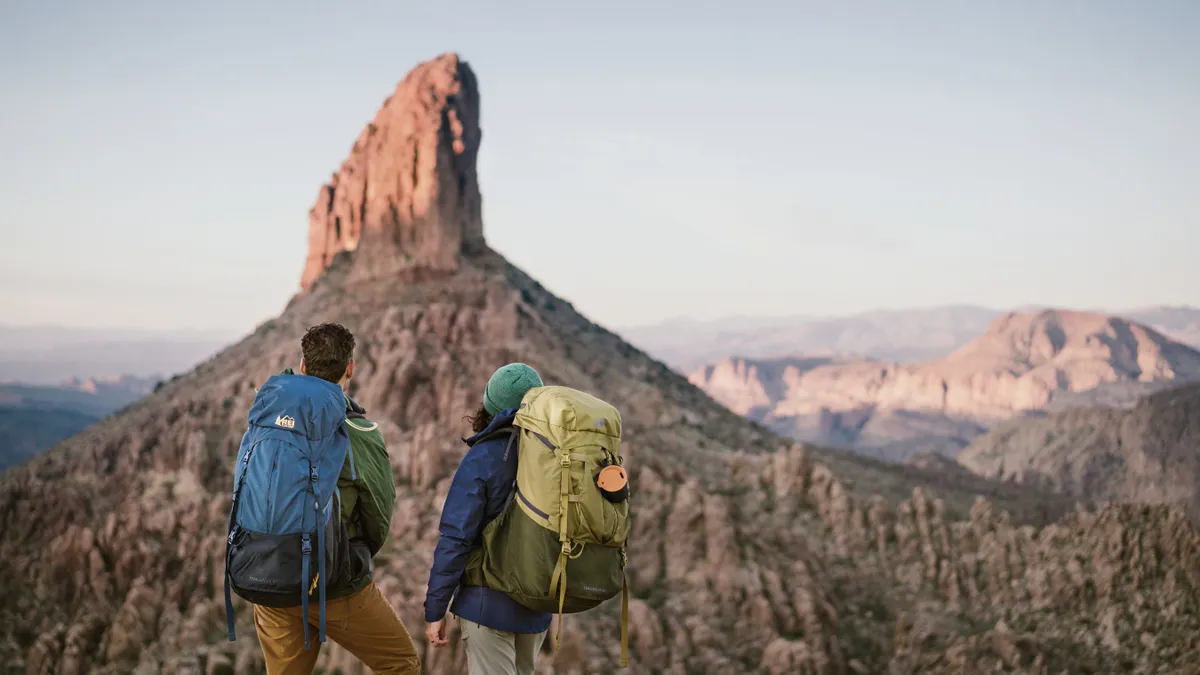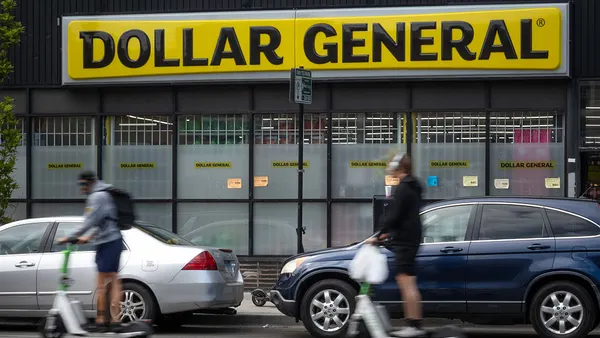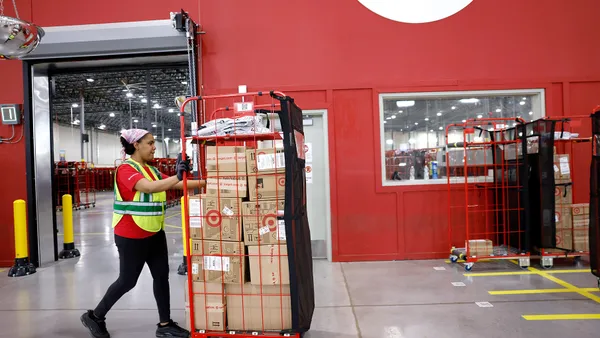Dive Brief:
- With the most chaotic parts of the pandemic likely in the rearview mirror, REI on Wednesday released its financials for 2020, including $2.75 billion in revenue and $0 in profit, which the company tied to its investment of $6.3 million into over 400 nonprofit partners. The retailer also said it is debt-free and in a "strong cash position."
- The outdoors retailer touted one million new members in 2020 and doubled its online used gear sales, according to a company press release. Used gear has been a focus for REI over the past few years especially, as the retailer has worked to increase access to used gear and rentals.
- Carbon emissions reduction was also in focus over the past year: All REI co-op brands are now certified as Climate Neutral, as well as 30 other brands. REI plans to reduce carbon emissions by 55% by 2030.
Dive Insight:
Despite the blow dealt to virtually all retailers by the pandemic — REI in particular laid off 5% of its retail staff in July last year — the company ended the year in a relatively solid position, and without losing its emphasis on the environment.
Alongside COVID-specific initiatives like virtual outfitting and curbside pickup, the retailer also touted going carbon neutral, investing in pay and committing to racial equity. That last point has also made its way into REI's product standards for vendors that sell in its stores. The company recently updated them to include expectations for how brands are tackling carbon reduction, inclusive marketing practices and cultural designs in products.
Much like Patagonia, which launched a political activism platform in 2018 dubbed Patagonia Action Works, REI is looking to more actively engage its members in activism.
"Our co-op was founded on the principle of individuals coming together for the greater good. Now, the stakes have never been higher for our planet, ourselves and future generations," President and CEO Eric Artz said. "Today we're announcing Cooperative Action — a new initiative to harness the collective power of our 20-million-member, 15,000-employee community to combat the most pressing issues facing our industry and society — climate change and racial equity."
Cooperative Action includes a grassroots advocacy network customers can join, where REI will give updates on what type of action customers can take to combat pressing issues. According to the retailer, it might include "writing a member of Congress, signing a petition, or submitting a public comment."
Hand-in-hand with REI's efforts to increase access to used gear, the retailer also wants shoppers to seek out "alternatives" to new items as part of their commitment to more sustainable practices. According to REI, every used item that gets purchased represents a 50% reduction in carbon emissions compared to buying something new.
The fact that REI has emerged relatively unscathed from the pandemic could be tied to the fact that the outdoors has had something of a resurgence during the global health crisis as consumers turned to nature to get out of their houses. The company's sustainable focus also isn't going out of favor with consumers. In fact, a Kearney study during the early months of the pandemic showed that consumers cared more about sustainability during the crisis, not less.














